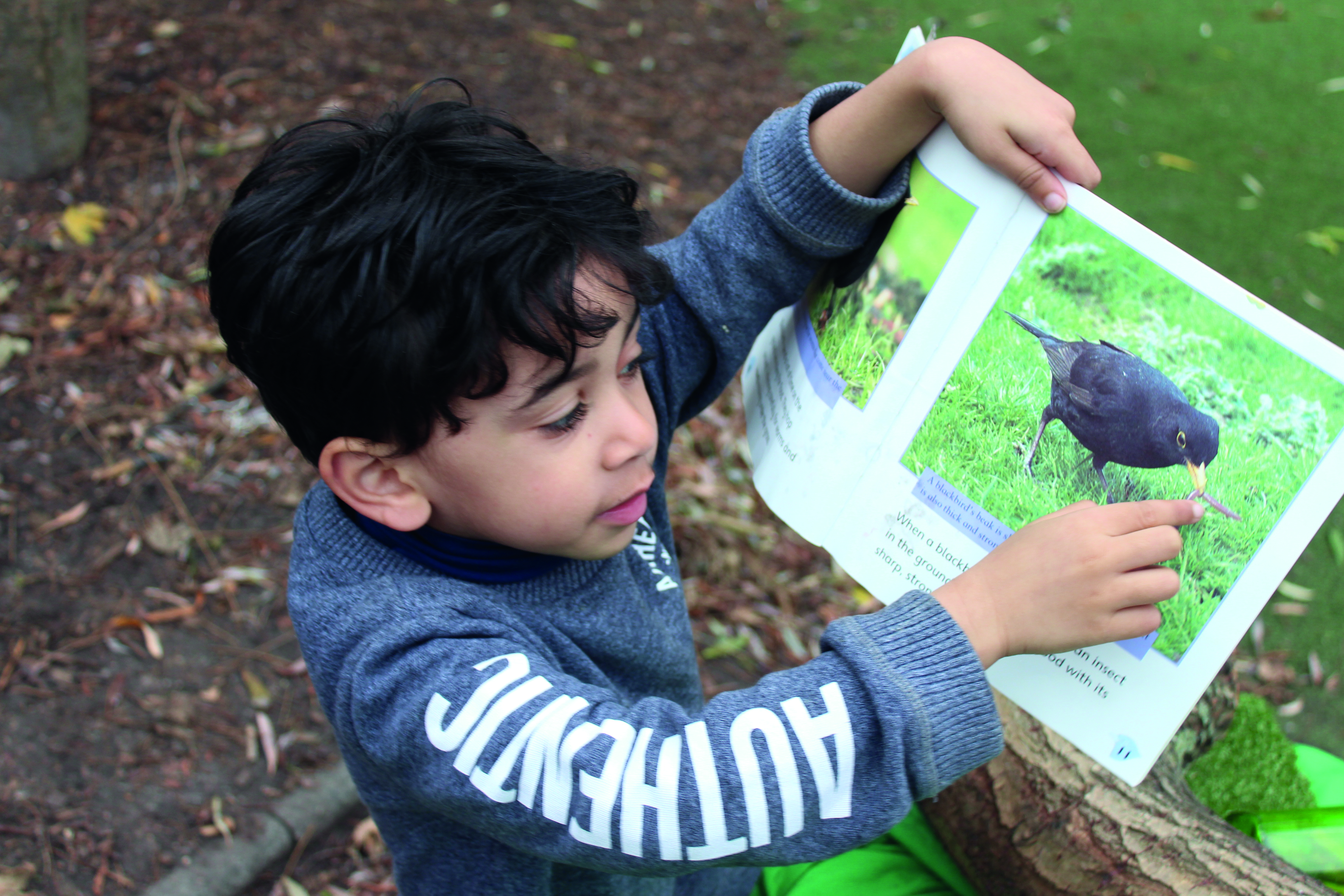
At Rachel Keeling Nursery School we believe that stories are central to children’s learning. The first story is the child’s own story. When children start, we ask their family to share their own story with us. We listen and consider where they have come from, their home languages, background and what makes them happy.
As soon as children start school, they enter a literature-rich environment with signs, labels, leaflets, story books, poetry books and information books easily accessible at all times.
We have a book-borrowing system and have removed signing in and out logs as we noticed this was deterring some families from borrowing. They take them home freely and for the pure pleasure of it – no forms to fill out.
TELLING TALES
We make sure storytelling and book sharing is an experience children can access every day in school. Sometimes it will be child initiated, but each day there will be discreet carpet sessions where children experience the joy of stories.
Our team are very skilled at storytelling in various ways, such as with books, props and music. Sometimes children will enjoy oral storytelling with no book. Key props can bring these oral stories to life for young children and bring a sensory aspect to the experience. Even our youngest children soon learn how to handle books with respect and will enjoy using them independently.
REFERENCE LIBRARY
As well as fiction books and magazines, we have a reference library (we call it our Research Library) where all the non-fiction books are kept. This is accessible to children and they are encouraged to use it when they have questions that need answering – last term, a child wanted to know why lions had manes! This resulted in a wonderful project where we all learned something new.
We ensure books are available in all areas of the nursery (inside and out) and regularly ensure they are in good repair and clean.
WONDERFUL WORDS
Sharing stories is a powerful way to enhance and extend children’s vocabulary: many children are entering school with low levels of language, social and emotional skills. Stories help to build a foundation upon which language acquisition and emotional intelligence can develop.
As long as we know children are getting regular and high-quality story sessions in school (and hopefully at home) we can develop our attention further to storytelling. The power of children telling their own stories is wonderful. We ensure we are active listeners when children tell us their news.

RUNNING NARRATIVE
Children are encouraged to use language and develop a narrative in their own play. We value the ideas and words of children and use the Vivian Gussin Paley ‘helicopter’ storytelling and story acting method. An adult scribes verbatim what the children say. Children then act out their stories with friends playing the characters. Stories may be one word or sometimes as long as a side of A5 paper. Children develop confidence, imagination and communication skills as well as the sheer joy of seeing their story come to life that same day.
MAGICAL STORIES
We have also more recently adopted the ‘Tales Toolkit’ methodology. Working with the whole class, a small group or one-to-one, children use the four key components of storytelling – character, setting, problem, solution – to weave magical tales. There are clear visuals and props that children use which act as ‘scaffolding’ to help them build their story. These can then be recorded visually or with photos and scribed for children.
One recent example of a Tales Toolkit story as created and told by a four-year-old: ‘Once upon a time a mouse [character: represented by a toy mouse] who lived on the moon [setting: represented by some tin foil]. He lost his key [problem: represented by a key]. Then a unicorn came and smashed a rock and found the key [solution: represented by a rock].’
We’ve noted that unicorns regularly appear even if we don’t have the physical prop there!
LANGUAGE RICH
Of course, all of this sits upon a wonderfully warm and language-rich environment where children use their voices, and their voices are listened to. Adults show enthusiasm for storytelling with interesting tone and volume as well as facial expressions.
Also, all our staff have their favourite bank of stories, information books and poems to share. Maybe start with your favourites and share the joy of stories in your setting.
- Rachel Keeling Nursery School is an Outstanding setting in Bethnal Green, east London
FURTHER INFORMATION
https://www.rachelkeeling.towerhamlets.sch.uk/tales-toolkit.html









